– he stated.
Let’s not delude ourselves. Today, the EU's asylum system is not working. Illegal migration in Europe has led to a rise in anti-Semitism, violence against women and homophobia. Several member states have already protested, but let me repeat, the facts speak for themselves: illegal migration has fueled anti-Semitism, violence against women, and homophobia in Europe. Whether you like it or not, these are the facts,
– Mr. Orban asserted.
The consequences of the EU's failed migration policy is also clear, as many member states are trying to create ways to opt out of the asylum system,
– he stressed.
Illegal migration and security concerns have led to a widespread and lasting reintroduction of border controls. I believe it is time to address this issue at the highest political level and discuss whether the political will necessary for the proper functioning of the Schengen Area can be restored," Mr. Orban said.
The Hungarian presidency is proposing to establish a system of Schengen Summits. Let's regularly convene Schengen Summits with the participation of the heads of state and government of Schengen zone countries. This already worked out once before. I remember that, during the 2008 economic crisis, the summit of eurozone leaders played an important role in our response. It was a successful coordination effort, as demonstrated by the fact that in 2012, we institutionalized it with an international treaty - the Euro Summit. I believe that the Schengen Area is facing a similar crisis today, so we need a similar political commitment: a Schengen Summit, followed by institutionalization through an international agreement,
– Mr. Orban suggested. The Hungarian presidency is also proposing to strengthen and expand the Schengen Area, calling for full membership for Bulgaria and Romania by year's end,
– he highlighted.
Distinguished members of parliament! Alongside migration, Europe faces numerous other security challenges. These will be addressed at the European Political Community summit in Budapest on November 7, two days after the U.S. presidential election. Madam President, we must confront the reality that when we talk about European security today, the EU is not capable of guaranteeing its own peace and security. We need to institutionalize European security and defense policies. The Hungarian presidency sees one of the best ways to achieve this through strengthening Europe's defense industry and technological base. This is why the Hungarian presidency is focusing on the European defense industrial strategy and the defense industrial plan,
– PM Orban asserted.
But the challenge is more complex than that, as it touches on national and EU competencies, and even international alliance structures. Hungary offers its own example: we allocate approximately 2.5 percent of our GDP to defense spending, a large portion of which goes toward development. The vast majority of our defense procurements come from European defense industry sources, and industrial investments are being made in all segments of the defense industry in Hungary with the participation of European players. If this was possible in Hungary, it can also be done across the entire EU,
– Mr. Orban said.
EU enlargement must continue
Another priority of the Hungarian presidency is EU enlargement. "There is consensus that EU enlargement policy must remain merit-based, balanced, and credible. The Hungarian presidency is convinced that accelerating the accession of the Western Balkans is a key issue for European security. The region's integration is advantageous for the EU from economic, security, and geopolitical perspectives. We must pay particular attention to Serbia. Without Serbia's accession, the Balkans cannot be stabilized. As long as Serbia is not a member of the EU, the region will remain unstable," PM Orban pointed out.
Let me inform you, distinguished members of parliament, that several candidate countries have met the technical criteria for further progress, but the political consensus among member states is missing. I ask you to remember that more than 20 years ago, the Union made a promise to the Western Balkans: we gave them a European perspective. The Hungarian presidency believes that it's time to fulfill that promise. What we can do is convene an EU-Western Balkans summit, where we hope to make progress,
– Mr. Orban said.
European farmers' livelihoods at risk
On the topic of European agriculture, PM Orban underlined that "the competitiveness of European agriculture has been significantly undermined by extreme climate conditions, rising costs, imports from third countries, and overregulation. It’s no exaggeration to say that this threatens the very livelihoods of European farmers. Food production and food security are strategic issues for every country, and for the EU as well. This is why the Hungarian presidency seeks to provide political direction to the new European Commission to create a competitive, crisis-resistant, and farmer-friendly European agriculture,"
– PM Orban accentuated.
Distinguished MEPs! Beyond agriculture, the Hungarian presidency has initiated a strategic debate about the future of cohesion policy. You are likely aware that around a quarter of the EU's population lives in regions where the level of development is below 75 percent of the EU average. Thus, reducing these development disparities between regions is essential for Europe. Cohesion policy is not charity, nor is it a handout. It is, in fact, the EU's largest investment policy and a prerequisite for the balanced functioning of the internal market. The Hungarian presidency believes that continuing this policy is crucial for preserving the EU’s competitive potential,
– Mr. Orban affirmed.
Orbán Viktor kiemelte: A magyar elnökség közös európai problémákra keres olyan megoldásokat, amelyek a józan ész talaján állnak. De nem csak megoldásokat keresünk, mi magyarok az Európai Unióban továbbra is keressük az álmainkat, a szabad és egyenlő nemzetek közösségét, a hazák hazáját, a demokráciák demokráciáját. Keressük az Istent félő és az emberek méltóságát védelmező, a kultúra, a tudomány, a szellem csúcsait ostromló Európát. Nem azért vagyunk tagjai az Európai Uniónak, mert olyan, amilyen, hanem azért, amilyen lehetne. És amíg úgy látjuk, hogy Európát olyanná tudjuk tenni, amilyen lehetne, amíg erre van egy fikarcnyi esély is, addig küzdeni fogunk érte. Mi a magyar elnökségben sikeres Európai Unióban vagyunk érdekeltek, és meggyőződésem szerint elnökségünk sikere az egész Európai Unió sikere lesz. Tegyük újra naggyá Európát. Köszönöm, hogy meghallgattak
He emphasized that the Hungarian presidency seeks solutions to common European problems that are based on common sense. Hoever, he said, we are not only searching for solutions; we Hungarians in the European Union are still searching for our dreams: the community of free and equal nations, the homeland of homelands, the democracy of democracies. We seek a Europe that fears God, defends human dignity, and strives for the heights of culture, science, and spirit. We are members of the European Union not because of what it is, but because of what it could be. And as long as we see even the slightest chance of making Europe what it could be, we will fight for it. In the Hungarian presidency, we are committed to a successful European Union, and I am convinced that the success of our presidency will be the success of the entire Union. Let’s Make Europe Great Again. Thank you for hearing me out,"
– PM Viktor Orban stated, concluding his speech.
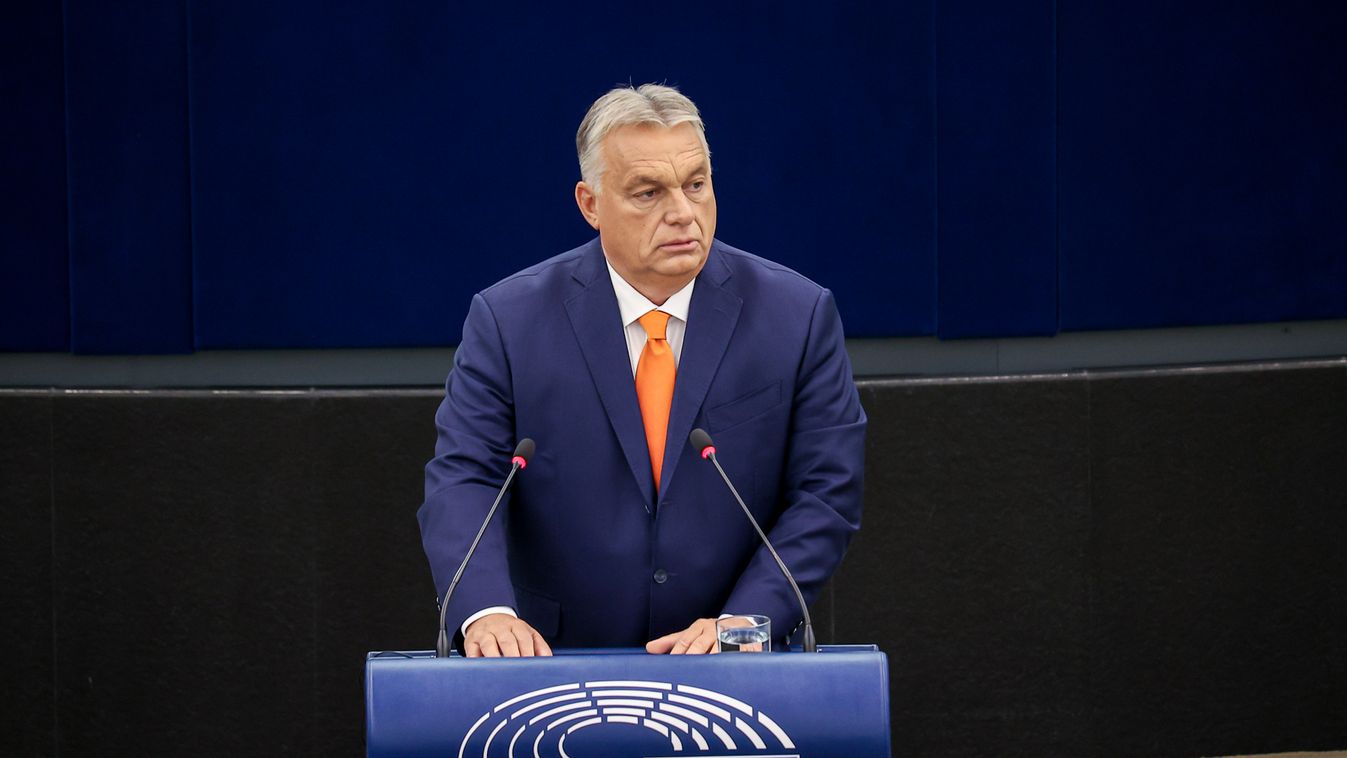
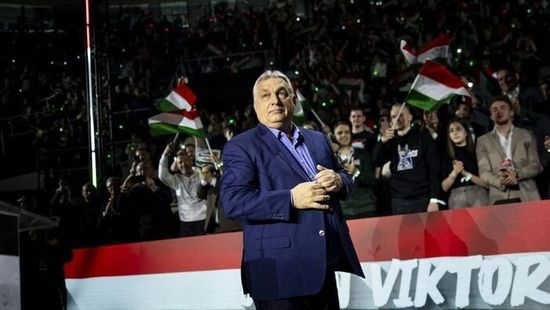
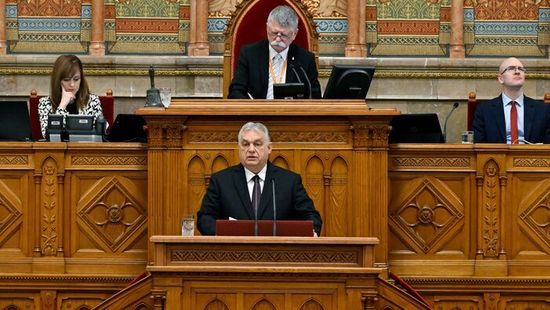

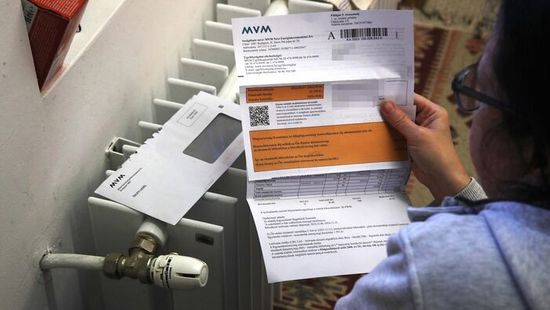

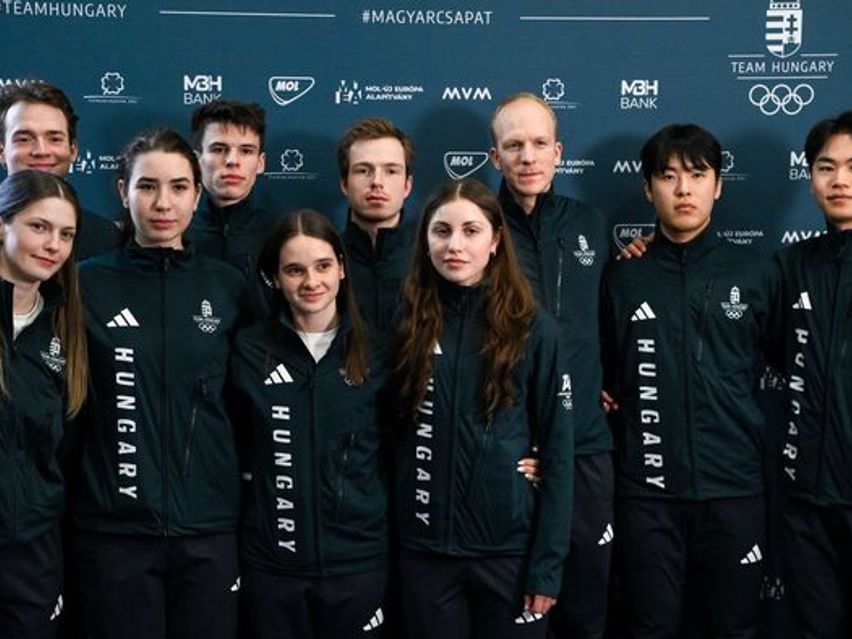


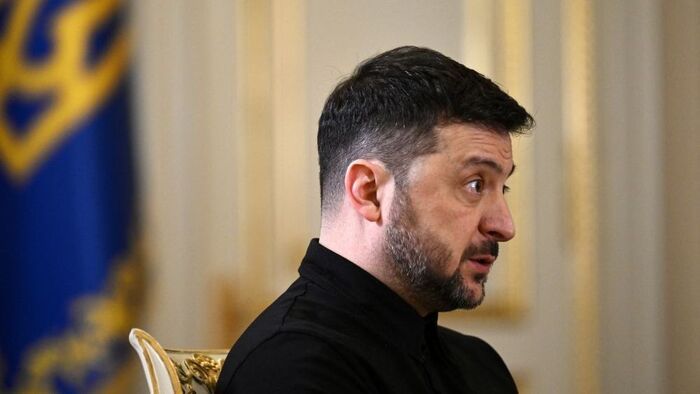

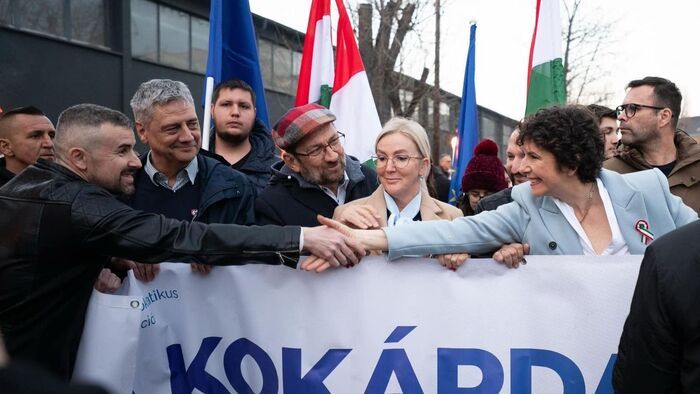
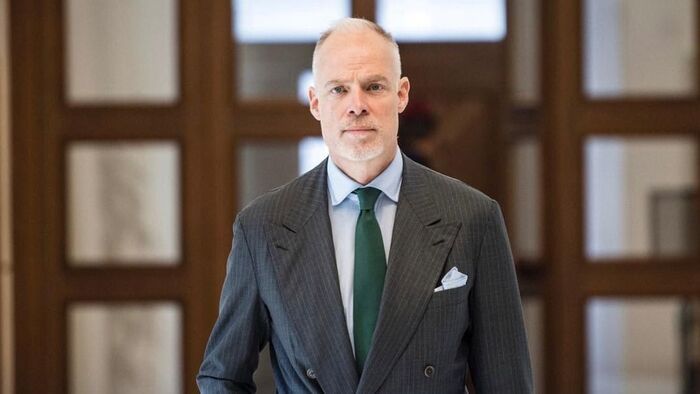
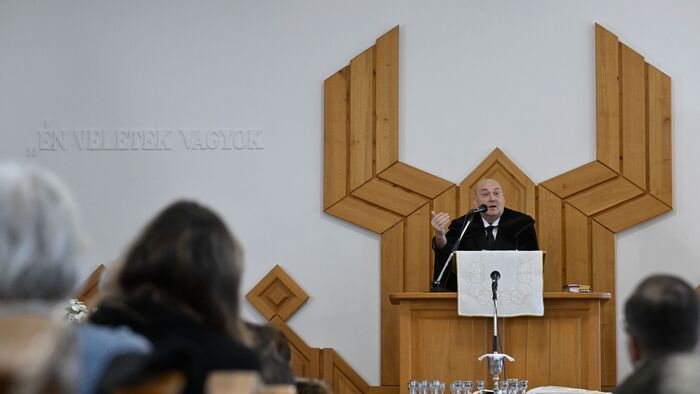
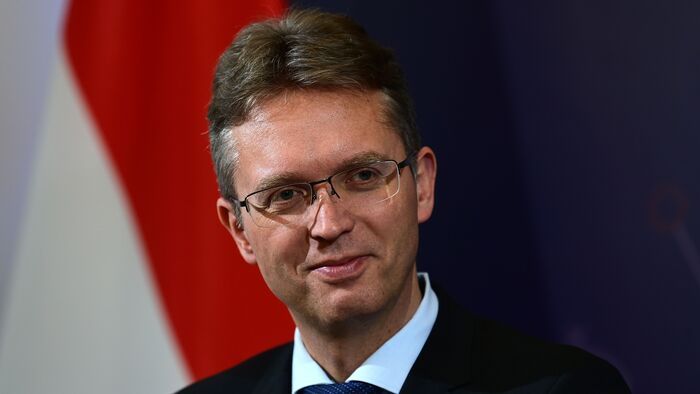
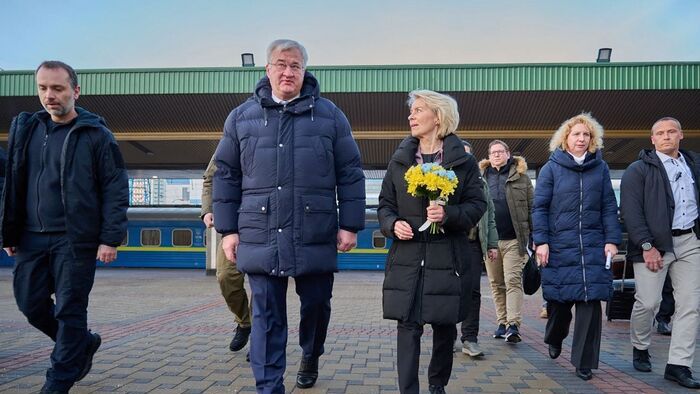
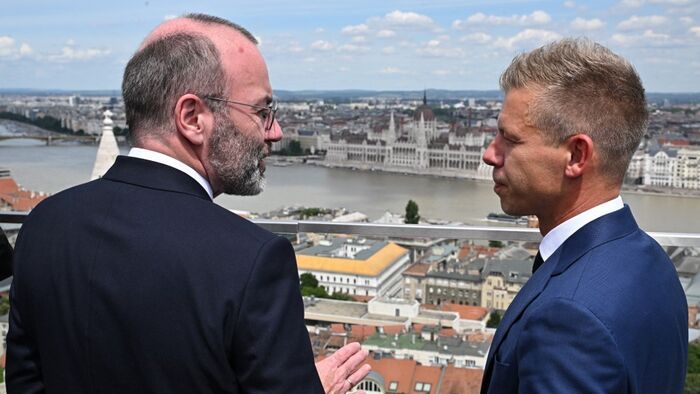
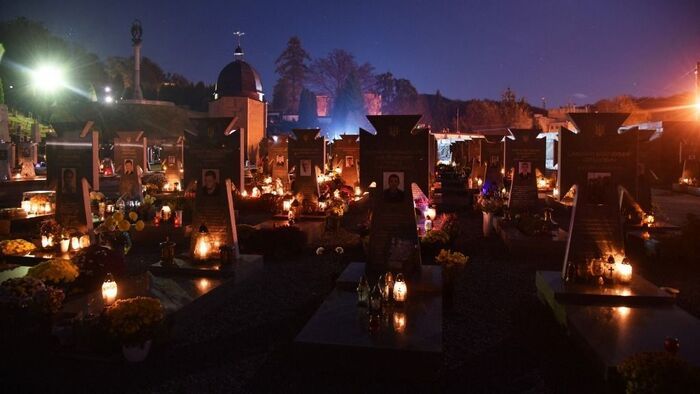



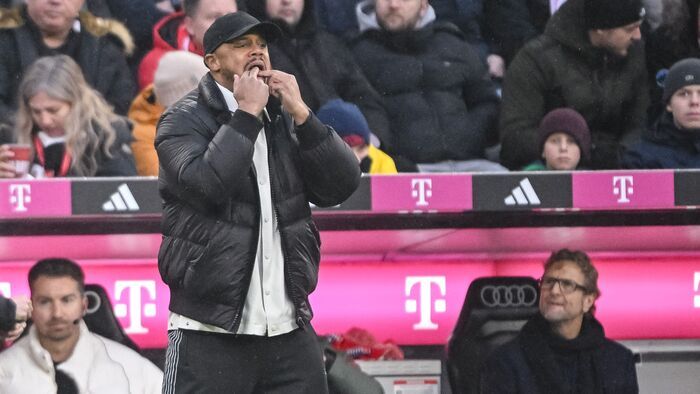

Szóljon hozzá!
Jelenleg csak a hozzászólások egy kis részét látja. Hozzászóláshoz és a további kommentek megtekintéséhez lépjen be, vagy regisztráljon!